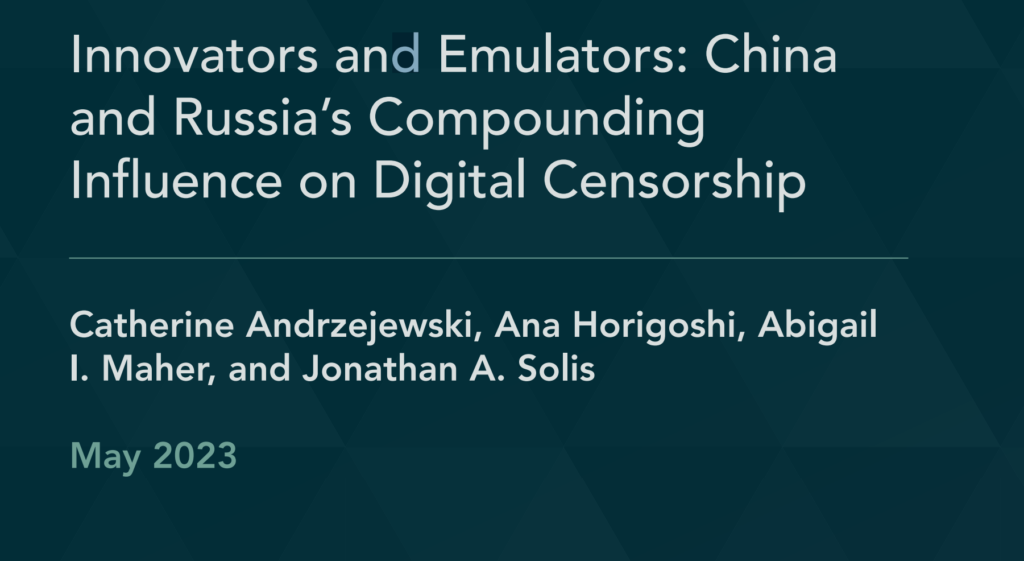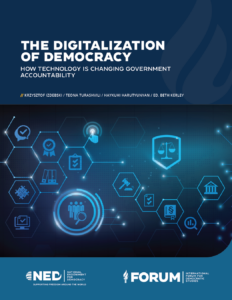 From Nicaragua’s adoption of Russia’s oppressive foreign agent law to Huawei’s provision of surveillance technology to Uganda, the Kremlin and China have been reliable exporters of authoritarian tactics and innovators in surveillance and repression. Thanks in large part to China and Russia, new research (above) indicates that digital censorship is on the rise, according to Caitlin Dearing Scott, the International Republican Institute‘s director for Countering Foreign Authoritarian Influence, and Jonathan Solis, a senior research analyst at AidData.
From Nicaragua’s adoption of Russia’s oppressive foreign agent law to Huawei’s provision of surveillance technology to Uganda, the Kremlin and China have been reliable exporters of authoritarian tactics and innovators in surveillance and repression. Thanks in large part to China and Russia, new research (above) indicates that digital censorship is on the rise, according to Caitlin Dearing Scott, the International Republican Institute‘s director for Countering Foreign Authoritarian Influence, and Jonathan Solis, a senior research analyst at AidData.
 As the main engine of innovation, democracies are at the forefront of developing many of the digital technologies that can be used by authoritarian powers, they write for The Hill:
As the main engine of innovation, democracies are at the forefront of developing many of the digital technologies that can be used by authoritarian powers, they write for The Hill:
- As such, democratic governments should consider monitoring and export restrictions to limit the opportunities to use these tools for malign ends.
- Technology companies should also resist the temptation to sell such technologies to autocrats and to comply with government demands that infringe on free speech and privacy rights, instead pushing for transparency and user empowerment.
- Finally, democracies must grapple with the role of development assistance in facilitating both digital censorship, but also digital democracy. China’s Belt and Road initiative has been used as an avenue to export the types of technologies referenced above; the U.S. and its democratic partners can counter these activities by supporting countries in developing free and open communication channels.
Digital authoritarianism is a defining challenge to democratic norms and practices globally. The digital revolution also presents opportunities for the National Endowment for Democracy (NED) and its grantees, enabling new forms of democratic organizing and the free flow of information, as well as new strategies for holding governments accountable. That’s why NED is seeking a Director, Technology and Democracy to lead its institutional strategy and integrated approach to grantmaking initiatives in this fast-evolving field.







